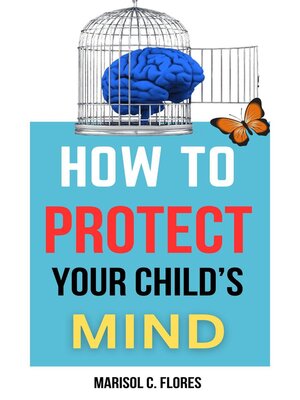
Sign up to save your library
With an OverDrive account, you can save your favorite libraries for at-a-glance information about availability. Find out more about OverDrive accounts.
Find this title in Libby, the library reading app by OverDrive.



Search for a digital library with this title
Title found at these libraries:
| Library Name | Distance |
|---|---|
| Loading... |
A child's mind is a delicate and powerful thing, shaped by the words they hear, the experiences they have, and the influences they encounter. Parents want to raise children who are strong, confident, and emotionally secure, but the world often presents challenges that can disrupt their sense of self. From media exposure to peer pressure, from academic stress to social expectations, countless forces compete for control over a child's thoughts and beliefs. Without guidance, young minds absorb harmful messages that shape their self-worth, emotional stability, and ability to navigate life's complexities.
Every parent faces a difficult truth: they cannot control everything their child sees or hears. They cannot shield them from every disappointment, every negative influence, or every misguided belief that society pushes forward. But they can equip them with the mental resilience to filter the noise, reject destructive messages, and build an identity rooted in confidence, critical thinking, and emotional balance. A strong mind is not one that avoids struggle but one that understands how to process, adapt, and grow through it.
The ability to protect a child's mind does not come from removing obstacles but from teaching them how to navigate challenges without losing their sense of self. A child who understands how to question harmful narratives, process emotions in a healthy way, and establish their own values is a child who will grow into an adult capable of facing the world with strength. Protection is not about isolation; it is about preparation. The world will not change for them, but they can be given the tools to meet it with resilience and clarity.
Parents often underestimate the power of their own words and actions. A single offhand remark about appearance, intelligence, or capability can leave a lasting impact. A well-intentioned push toward achievement can be misinterpreted as a demand for perfection. A small inconsistency between what is said and what is done can create doubt. Protecting a child's mind begins at home, in the way conversations are held, expectations are set, and love is expressed. The messages children hear in their formative years become the beliefs they carry for a lifetime.
The strongest defense against negative influences is not restriction but education. A child who understands how to analyze the messages they receive is far less likely to be controlled by them. Teaching children how to think, rather than what to think, gives them a power that cannot be taken away. When they understand that self-worth is not determined by external validation, they stop seeking approval from sources that do not serve them. When they recognize manipulation, they refuse to be swayed by false promises. When they are taught to listen to their own inner voice, they stop relying on others to define who they are.
No child is immune to the pressures of the world, but every child can be prepared to handle them. The goal is not to create a life free of challenges but to ensure they have the skills to rise above them. When a child's mind is protected, they do not break under stress, they do not fall victim to comparison, and they do not allow others to dictate their worth. They become leaders of their own lives, grounded in confidence and clarity.
Readers will gain a deep understanding of the most common threats to a child's mental well-being and, more importantly, the strategies to counteract them. This book provides insights into recognizing early warning signs of harmful influences, practical techniques for reinforcing self-esteem, and proven methods for fostering emotional intelligence. Through a combination of research-backed principles...







